How to Make Room for Your Mental Health During Times of Uncertainty
posted on May 5, 2020 | by Alyssa Abel

It’s no secret that many of us are struggling with uncertainty, unhappiness, or unrest right now.
Many of us have had to put personal plans on hold, adjust to a new working routine, or even adjust to being without employment. We can’t go out to our favorite restaurants, blow off steam with a day out and about, or even be sure of our summer plans. We’re unable to visit loved ones or hang out with friends.
We might have taken them for granted before, but those activities, routines, and relationships make a substantial difference to our mental health. Plus, the current news cycle isn’t exactly heartwarming—which doesn’t help whatsoever.
Fortunately, we can stay uplifted by taking time to care for ourselves. In honor of Mental Health Awareness Month, here’s a look at how to manage self-care for better mental health during coronavirus.
We Can Thrive, Even When We’re Apart
Before you browse any suggestions, it’s essential to remember that you’re not alone. This sentiment may seem overly cheesy or even untrue, but it’s not! Almost everyone has endured anxiety or fear because of this situation. Although these experiences aren’t easy, we can work together to overcome them. If you already grapple with mental health issues, several resources can help.
Here are a few ideas on how to take care of your mental health through COVID-19.
1. Avoid Negative News
While it’s essential to stay informed, negative news can cause a lot of problems. In fact, around 63 percent of Americans say that at some point, they’ve felt stressed out due to worries about our future. Therefore, do your best to stay away from social media and news articles as much as possible. If you can’t refrain, turn off any notifications you receive instead.
Feel free to keep updated with local and state mandates, but try not to go overboard. Allow yourself to check for essential news once a day for a specific amount of time—like 10 minutes in the morning—and then keep your distance.
2. Establish a Sleep Pattern
If you transitioned to remote work or school from a more active physical routine, your circadian rhythm likely took a hit. When there’s no reason to leave home or keep schedules, we can fall asleep at midnight and wake up at 1 p.m. without any repercussions—right? Wrong. Actually, sleep deprivation poorly affects mental health, so it’s necessary to figure out a better sleep pattern.
It’s best to start out slowly. Many mental health issues impact our ability to fall asleep soundly, so don’t feel discouraged if you can’t adapt immediately. Every day, try to make small adjustments. Try taking a bath, trying a guided meditation, drinking some warm tea, or following another relaxing routine to get your body primed to wind down.
3. Spend Some Time Outdoors
Just like irregular sleep patterns, spending too much time cooped up indoors can have a negative impact on your state of mind.
Depending on whether you live in the city, the country or the suburbs, you might be used to a more fast-paced or peaceful lifestyle—but no matter where you are, you can make time to breathe some fresh air. Take an hour or two to take a socially distant walk around your neighborhood, do some gardening in your front yard, or escape onto your balcony. Quiet your thoughts, smell the changing season, and listen to the sounds around you. A little sunlight and the smell of spring can do wonders for your mood.
4. Make Time for Virtual Hangs
Close interactions can’t happen at the moment, but that doesn’t mean you can’t hang out with your friends and family. The 21st century has blessed us with technology, so there’s a ton of ways to stay connected. Whether you want to say hello to your grandma before bed or eat dinner with your long-distance partner, it’s possible! Ask everyone to download the same platform so that you don’t encounter difficulties.
Then, schedule a time to talk and laugh every week. You could put together a virtual dinner party or host an online board game competition. Either way, you can forget about your anxiety and stress for an hour or two. As long as we continue to communicate, we’ll make it through this time.
5. Consult Online Resources
Sometimes, it’s okay to realize when we need a little more help managing our mental health. You may not be able to visit your therapist, but you can consult different online resources—such as the crisis text line, teletherapy apps like Talkspace, and social media support groups. You could reach out to a trusted friend, too, but it’s essential to talk with an expert if you want to address deeper problems.
Don’t feel ashamed to take advantage of these kinds of tools. They’re there for you to use! Right now, we can all use a little help. Try not to push away your emotions, either. It’s important to share whatever’s on your mind so you don’t feel overwhelmed.
Use These Ideas for Self-Care During Coronavirus
When it comes to taking care of your mental health, little things like staying connected, quieting negative thoughts, and establishing a sleep routine can go a long way—and taking time to talk through your emotions is often helpful. Remember to make room for your mental health this May—and always.
 Using Trunk Club to Update My Spring/Summer Wardrobe
Using Trunk Club to Update My Spring/Summer Wardrobe 5 Tips For Styling a Simple Summer Dress
5 Tips For Styling a Simple Summer Dress 5 Ways to Style a Bandana
5 Ways to Style a Bandana 3 Different Ways to Curl Your Hair
3 Different Ways to Curl Your Hair How to Master the 5-Minute Makeup Routine
How to Master the 5-Minute Makeup Routine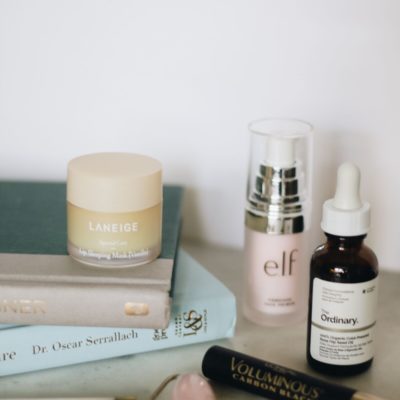 Amazon Beauty Buys Under $25
Amazon Beauty Buys Under $25 3 Ways to Make Your next Trip More Memorable
3 Ways to Make Your next Trip More Memorable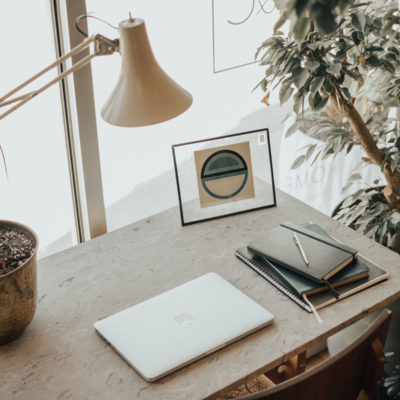 Tips for Digital Spring Cleaning and Organizing
Tips for Digital Spring Cleaning and Organizing Color Trend: Marigold
Color Trend: Marigold Mental Health Update: The 3 Major Changes I Made to Get Out of Depression
Mental Health Update: The 3 Major Changes I Made to Get Out of Depression 5 Unexpected Ways to Unwind After Work
5 Unexpected Ways to Unwind After Work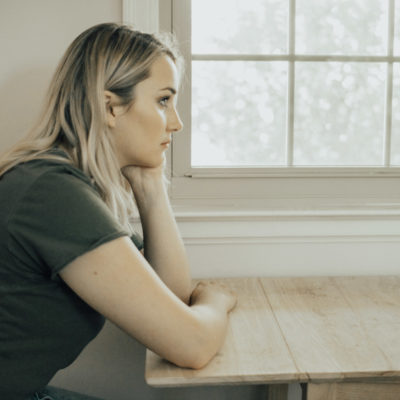 How to Know You’re in a Controlling Relationship
How to Know You’re in a Controlling Relationship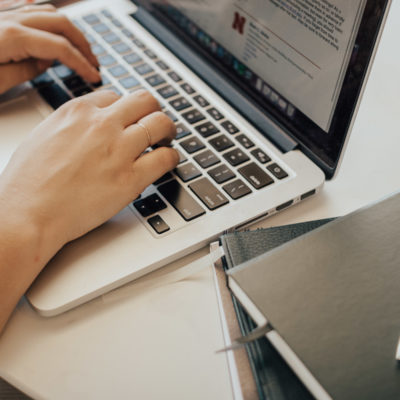 4 Questions I get Asked as a Professional Resume Writer
4 Questions I get Asked as a Professional Resume Writer How to Make Friends at Work
How to Make Friends at Work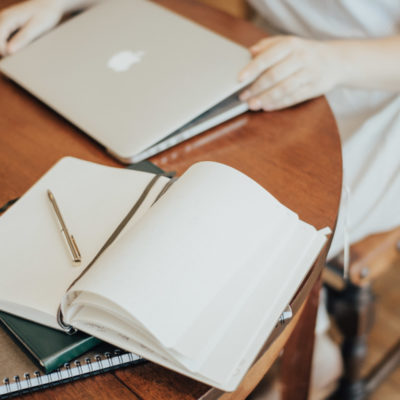 Getting Out of the ‘Busy’ Mindset
Getting Out of the ‘Busy’ Mindset Ask Amanda: How do I pursue the career I want without formal training?
Ask Amanda: How do I pursue the career I want without formal training? Ask Amanda: How Do I Find a Therapist?
Ask Amanda: How Do I Find a Therapist? Ask Amanda: How do I stop being jealous in my relationship?
Ask Amanda: How do I stop being jealous in my relationship?



Jery Adams Says
Thanks for your article. Indeed, the period of the pandemic has changed the lives and moods of many people. Especially in my opinion those who were left without work and means of subsistence suffered. In such situations, it is difficult to control your emotions and continue to be positive. The best counseling websites can help to cope with the state of oppression and depression, but first of all, a person must decide that he wants to get out of his emotional bottom and is ready to accept help.
Veronika Says
You are absolutely right, so that health does not let you down, you need to deal with it not when it becomes bad – but constantly. In addition, there are now many cool tools that will help you maintain a good condition. You can now choose for yourself the means that will support health, there are cool reviews https://nehealthcareworkforce.org/ for this purpose
Patricia D Crouch Says
I also noticed that the state of my mental health is reflected in my productivity, so I try to keep my mental state always normal. In addition, stress resistance is very important for building a career. Online counseling from https://us.calmerry.com/try-online-therapy/ helps me a lot to achieve stress resistance. This opportunity is provided to me by the management of the company where I work. Caring for employees is one of the reasons why I appreciate my work.
Emilia Says
Take care of your mental health now, so as not to suffer later. In many situations in life, we become too vulnerable, it is important to learn how to control this. There is a lot of useful information on this subject here https://whatistruth.life/what-is-mental-toughness-and-how-to-develop-it/
Olivia Says
The level of mental well-being has a significant impact on the quality of life of each person. The state of psychological well-being is determined by the level of satisfaction, joy and harmony in the inner world of the individual. Here you can learn more about how stress affects your health https://alldaymedicalcare.com/introduction-to-stress-and-its-impact-on-health/ . It affects all areas of life, including physical, emotional, social and spiritual health.
Agustin Zimmerman Says
The gameplay of geometry dash breeze is unique in that you need to coordinate with the music. Every jump must be in the right rhythm, and this is what makes the game more interesting and difficult.